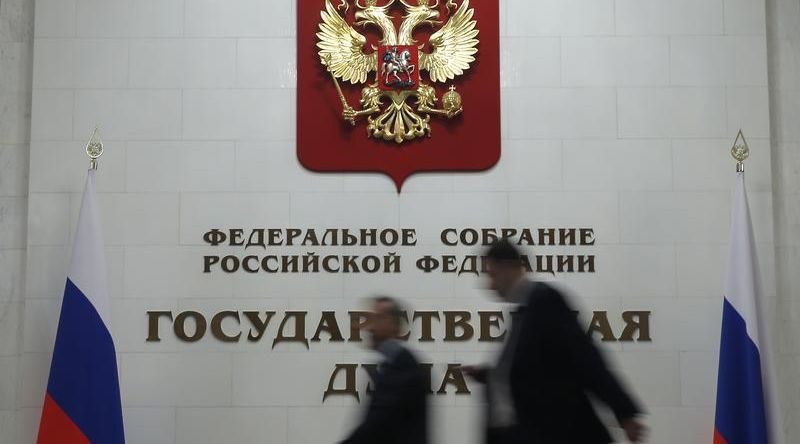
6 minutes
RUSSIAN STATE DUMA ELECTIONS 2021 IN SOCIAL MEDIA
Analysis of social media coverage of the 2021 parliamentary elections in Russia

The elections to the State Duma (the lower house of the Federal Assembly), which were held from 17 to 19 September 2021, took place against a backdrop of the exclusion of genuine opposition candidates, the general absence of independent media, the elimination of civil society and the absence of credible international observers due to the restrictions imposed by the authorities. These were the first elections held after the 2020’s referendum on changes to the Constitution which included enhancing the powers of the incumbent president, who can run for two more terms and can remove judges of the Constitutional and Supreme Courts. The changes introduced within the overall legal framework also included additional limitations on holding public assemblies and increased criminal liability for related violations, expanded the status of ‘foreign agents’ to private individuals, and further tightened media and Internet regulation.
Four hundred and fifty seats were contested in a mixed electoral system, with half of them elected in single-mandate constituencies under the first-past-the-post system and the other half from lists of candidates of political parties in one federal constituency. Fifteen political parties wanted to participate, and 14 were registered to contest the elections, but prominent opposition figures were banned or excluded from running. The elections were marked by a widespread allegation of fraud. The introduction of electronic voting, which was made available in 7 regions of the Russian Federation, was among the most criticized ‘novelties’. The elections lacked credibility and were at odds with the international commitments to which Russia had committed itself.
The aim of the monitoring project was to map the communication of political actors on social networks in the pre-election period (from 19 July to 16 September). The analysis of posts by selected political actors (contesting entities) on the social networks Facebook, Instagram, Vkontakte, and Odnoklassniki focused primarily on the stories (narratives) presented in these posts.
When comparing the number of posts by political parties on the four monitored platforms, parties were generally more active on Facebook (FB), while the fewest posts appeared on Odnoklassniki (OK). They posted 1,735 posts on Facebook, 1,268 on Instagram (IG), 1,059 on VKontakte (VK), and 507 on Odnoklassniki.
The single most frequently presented story by parties was ‘Election campaign activities’, with 239 posts dedicated to this story on FB. However, on all three other platforms, this story was not featured very often. The most presented story on each of the other three platforms was ‘Social support’ with 179 posts on Instagram, 112 on VK, and 83 on OK respectively. On Facebook, ‘Social support’ was presented in 73 posts (the seventh most frequently presented standalone story on this platform).
For stories directly linked with elections, the story of the ‘Withdrawal of candidates’ was frequently presented on VK and OK (5th place), while it was only 11th on Facebook and 14th on Instagram.
Other key stories were ‘Covid-19 in Russia’, which was the 2nd most presented standalone story on three platforms - FB, OK, and VK, while it was the 5th on Instagram. Also, ‘Environmental protection’ featured high - the 3rd most frequently presented story on FB (82 posts) as well as on VK (51 posts), and 2nd on IG (90 posts), while on OK it was the 4th one (22 posts).
On Facebook, relatively frequently presented stories were also the following ones: ‘Sanctions against Russian athletes’ (4th, 80 posts), ‘Economic development, business support’ (5th, 77 posts), and Criticism of Russian elections (6th, 75 posts). On Instagram, while the above-mentioned story of ‘Social support’ dominated, other frequently presented stories were ‘Environmental protection’ (90 posts) and Covid-19 in Russia (88 posts). On OK, the most frequently presented story (not mentioned above) was ‘Formation of the right historical memory, cultural policy’ - 3rd most frequently presented single story, while on VK, ‘Ensuring security’ ranked as the 4th most frequently presented story (41 posts).
If we consider the stories that generated the most interactions on FB, it was ‘Election campaign activities’ (239 posts, with over 17,000 interactions), followed by ‘Sanctions against Russian athletes’ (which had a higher ‘interaction’ rate, with 80 posts generating over 10,000 interactions). Other election-related stories also gained a high number of interactions - ‘Withdrawal of candidates from elections’ and ‘Criticism of Russian elections’.
On Instagram, ‘Social support’-related stories (179 posts) were the most interacted to, followed by ‘Renewal (turnover) of power (2nd in terms of interactions, and 1st in the number of views) -72 posts - and ‘Criticism of Russian elections’, which was presented in ‘only’ 35 posts but was the 3rd in terms of interactions. ‘
In VKontakte, the four stories that generated the highest number of interactions are as follows: ‘Social support’ (11,800)’ ‘Withdrawal of candidates’ (10,900), ‘Criticism of Russian elections’ (9,550), and ‘Covid-19 in Russia’ (8,850).
As for Odnoklassniki, a story of ‘Social support’ was the dominant story (3,200), followed by ‘Covid-19 in Russia’ related stories with (almost 1,000 engagements), ‘Formation of the correct historical memory and cultural policy’ (650), and ‘‘Criticism of Russian elections’ (530).








VK




OK




The full report in pdf can be be found here social-media-report-elections-2021-final
The media monitoring results in pdf can be found here ru-2021-elections